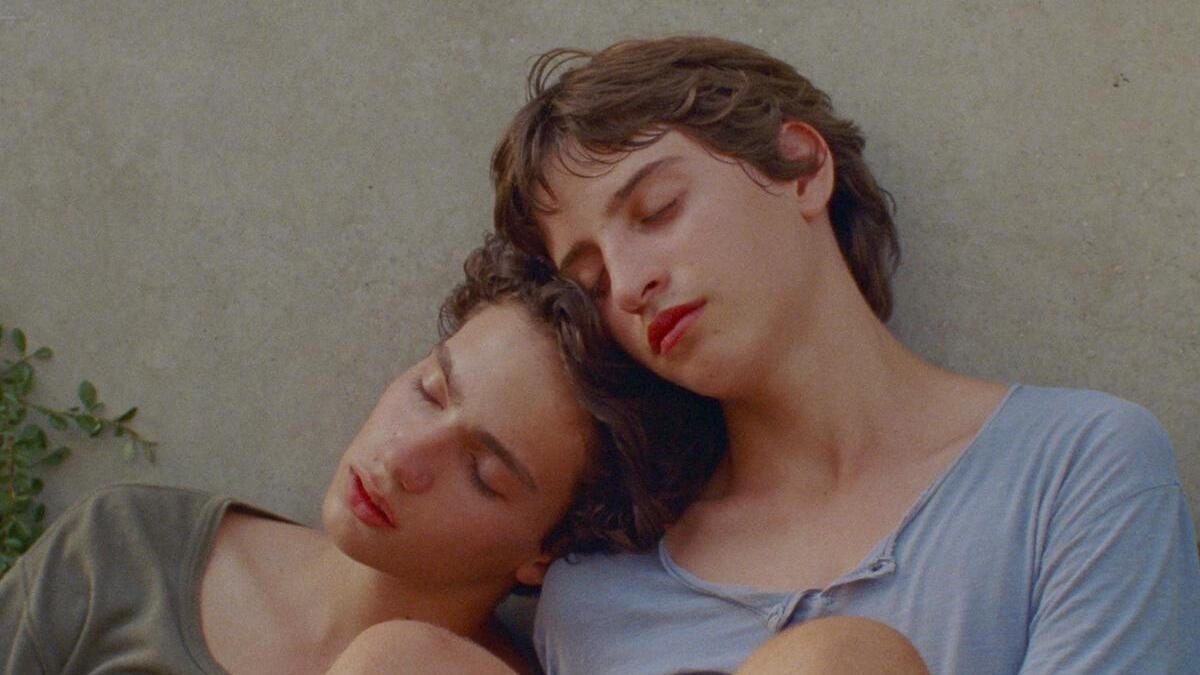

Interviews
Venice Film Festival 2025 – Interview With Director Jaume Claret Muxart (Strange River)
Strange River recently screened at the 2025 Venice Film Festival. It is the debut feature film by Catalan director Jaume Claret Muxart and is co-written by himself alongside Meritxell Colell.
The film recalls the family cycling holidays Muxart enjoyed as a boy but is not autobiographical, as such. It’s the story of a teenager (Dídac), cycling, with his family, along the banks of the Danube River, on a summer trip. Shot in 16mm, the film stars Nausicaa Bonnín with mesmerising young newcomers Jan Monter and Bernat Sole.
Along the beautifully filmed journey, Dídac comes across a mysterious young man and so begins another type of journey; that of the emotions and the turbulence of coming of age. The physical journey of the river, which starts as a stream and then widens into one of the most famous rivers in the world, mirrors the growth of Dídac’s heart and new experiences of life.
Rehna Azim had the pleasure of interviewing Jaume at the festival.
Nature is like a separate character in the film. The vibrant colours of summer, the sensual capture of shimmering light on water, the rustle of leaves all seem to add majorly to the story. How important a feature of the film was it for you?
Thank you. It’s a very important part of the film. I was really interested in seeing how I could portray the feelings of the characters, the transformation in them through the nature surrounding them. I wanted it to be alive in the same way they were. The world of image and sound gives the viewer a space through which to enter the film. I always think of a film, when I watch it, as being something I should be able to smell and feel what it is trying to say. The landscape that you see changing in Strange River reflects the landscape within the characters that is also changing. I’m interested in the way nature affects the emotions of people and how the inside and outside are connected. I’m a big admirer of Jean Renoir and the themes he explores in his films. I also like the work of Frederick Holderlin (German poet and philosopher) and some of his writing features in the film.
The film is set over a summer and you don’t show the seasons changing. Was that a conscious decision?
Yes, you don’t see the seasons in the film changing because these kind of trips normally take place in the summer and tend to be over weeks. So, the trip is over two or three weeks.
It’s based on your own cycling holidays as a young boy. How did it feel to relive those trips through actors?
I felt closer to my own childhood and experiences of similar trips when I was writing the film rather than when I was shooting it. By the time we were filming actors were involved and I was watching them create a new family and so it was not nostalgic for me because they were not me or my family, they were characters with their own lives. And I was following the characters, not my own experiences. There were moments that recalled my own trips but although the film is based on personal experiences of similar trips, it’s not autobiographical.
The two young leads are very striking, particularly the actor who plays Dídac. His eyes are especially mesmerising, both the striking blueness and the depths within them. What were you looking for when you were casting the film?
In casting the film, I wanted actors with mystery in their eyes. I wanted to see things in their faces and their eyes that I couldn’t understand. If the eyes of the actor have mystery than the film will have mystery too and the viewer will want to know what is happening Inside the actor’s mind and behind those eyes. It then draws you to want to know what is happening inside the mind of the character and where it will lead the story. I also wanted to cast a boy who was at a similar point in his life, that moment of change. Jan was 16 when he was cast and was at such a moment.
I saw 850 boys for the role. He was the 600th!
As soon as he arrived it was really obvious he was the one. It was like he was already the character but he added more to the Didac we had created, as well. He brought a lot of perspectives to the role and I like the kind of creative actors who can do that. They can then be part of the creative process. Preparations for filming took place over four months but it was mainly about getting to know each other. We did technical exercises but we didn’t rehearse scenes as such. It was more a creative process of getting to know the actors. I needed to see how they moved, how they interacted with each other, how they spoke. It was also about building believable family relationships. One weekend, for example, we just spent time together doing normal things, like going to the river to swim. It was about really getting to know the actors.
In one scene, there’s a striking line. “I don’t like boys, I like Gerard. What were you trying to convey with that line?
I’m very happy you’ve picked up on that. For me, it’s a very important line. For me that sentence is almost political. I didn’t want to make just another film about someone exploring their sexuality. This is about a different generation, I like to think we now have a generation in which there are people who are more fluid. He doesn’t know what he likes. He just likes the person, not the sex. The line was actually not in the screenplay. It came up during the exercise that we did. I was improvising as the father and the line came up. I sent it to my writer and he included it in the script. Then in shooting, we shot two scenes and decided which to go with, so some of the rewriting actually happened in the editing process.
The mother and son relationship is important. Why was it significant for you to portray the mother remembering her own experiences of romance?
The mother son angle in the film is a sort of education in love. It’s about how a mother looks at her son as he’s experiencing love and recognises that he is going through the same feelings that she once did . In this case the son is creating his own story from her past. Meanwhile, she’s letting go of her past even while she’s also exploring a lot of situations with the neighbour. She too wants to feel, again, the passion of first love because it’s a very strong thing. Most of us remember our first love.
Is the film doing the festival circuit beyond Venice?
Yes, we are doing a big festival run. After here we’re going to Busan, then San Sebastián. Then we have a big autumn schedule.
What has been the response to it, so far?
So far, responses have been very good. People are receiving the film and understanding it and enjoying it. I love films that raise questions and fill your mind. That means the film has got into you and you don’t have all the answers from it. Even I have questions about it. I don’t have all the answers.
One of the questions I had is, is Gerard real?
I agree. That’s for the viewer to feel or decide. I wanted him to be someone from the imagination but becoming physical. That he’s so strong in the imagination that he actually becomes real. So, at the beginning of the film, you don’t see his face. You don’t know his name. Then he gets out of the water as the desire for him materialises. He comes out of the water in the way desire materialises.
What is your hope for the film?
I hope audiences go to the cinema to see it. I hope audiences will still continue to go to the cinema. Cinema can be transformative. I hope parents go see this film and hopefully communication with their kids can be better as a result of it. There is a space for everyone in this story. There are characters for everyone to connect with, in the film. Maybe you can connect more with the mother or the brother. There isn’t just one point of view in this film, viewers can live in it through the different characters And enjoy the summer shown in it!
-
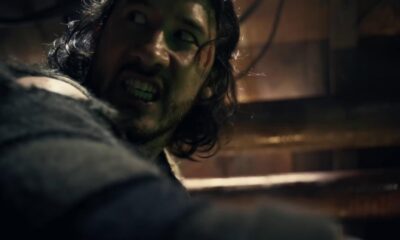
 Featured Review3 weeks ago
Featured Review3 weeks agoIron Lung ★★★
-
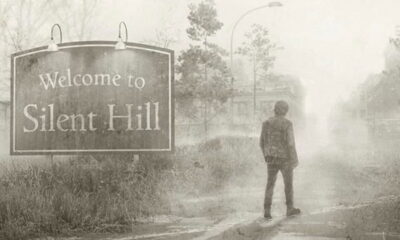
 Featured Review4 weeks ago
Featured Review4 weeks agoReturn To Silent Hill ★★★★
-
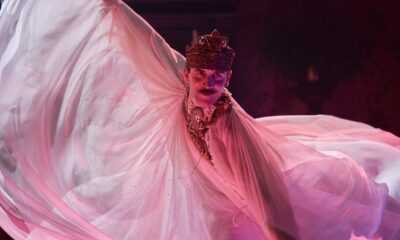
 News3 days ago
News3 days agoFull 2026 Programme For BFI Flare Revealed
-
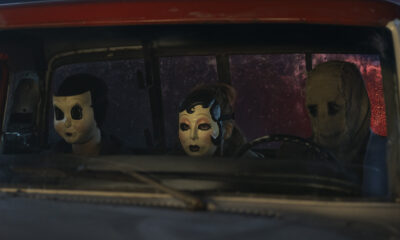
 Interviews3 weeks ago
Interviews3 weeks agoInterview With Director Renny Harlin (The Strangers: Chapter 3)
-

 Featured Review4 weeks ago
Featured Review4 weeks agoScarlet ★★
-
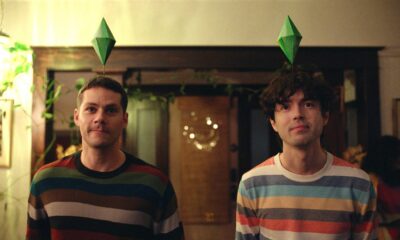
 Featured Review2 weeks ago
Featured Review2 weeks agoTwinless ★★★★★
-
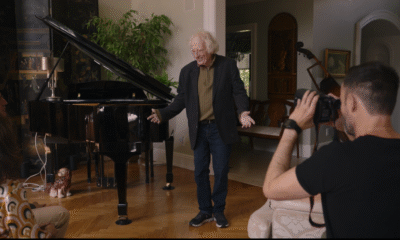
 Interviews2 weeks ago
Interviews2 weeks agoUp Close with Marc Cubelli
-
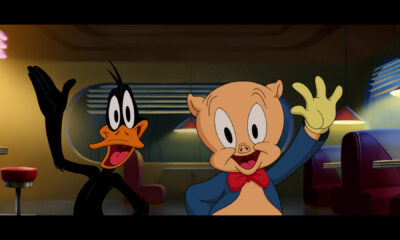
 Movie Reviews2 weeks ago
Movie Reviews2 weeks agoThe Day The Earth Blew Up: A Looney Tunes Movie ★★★





